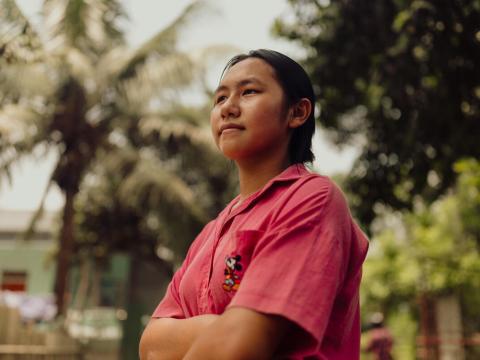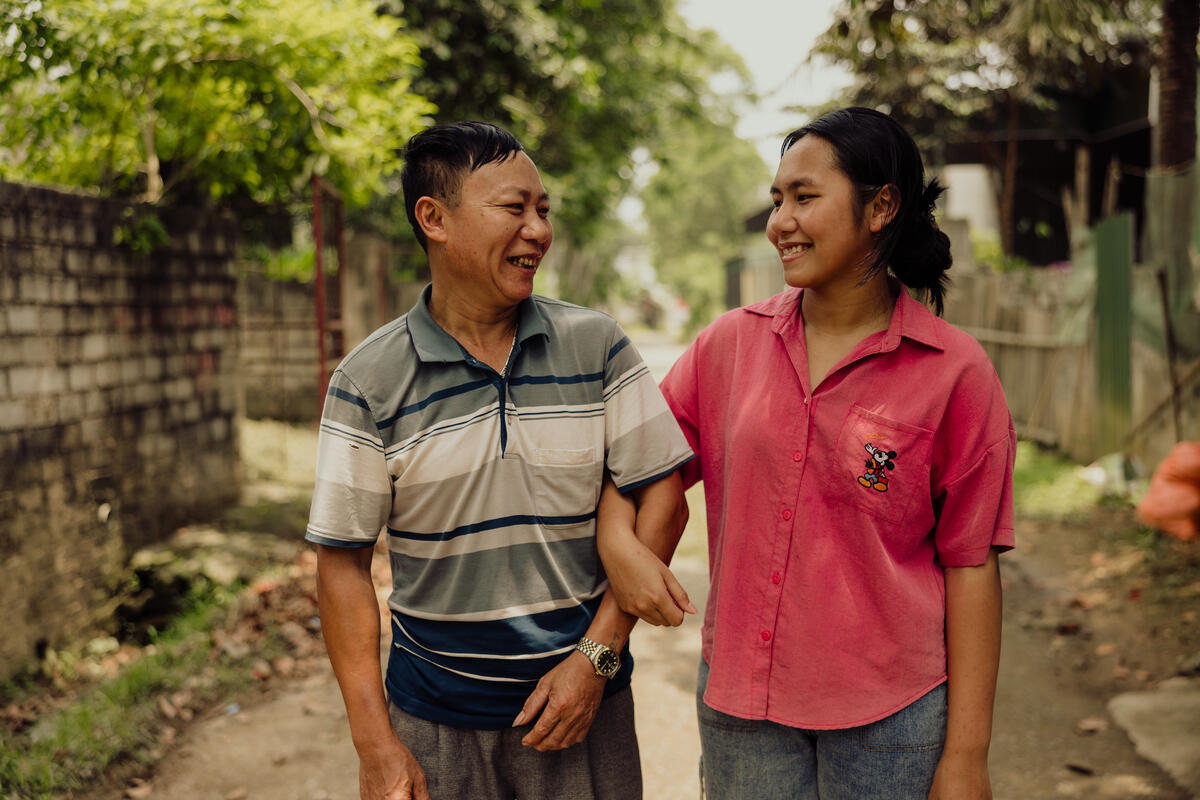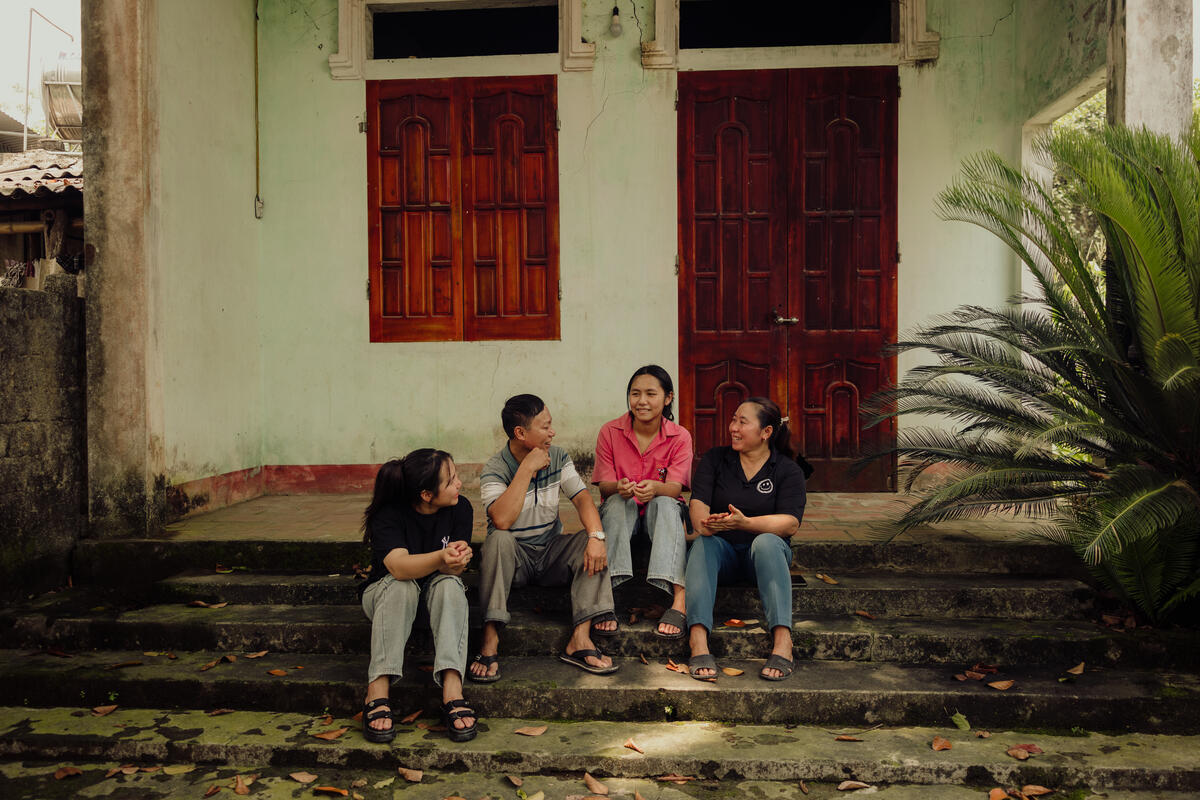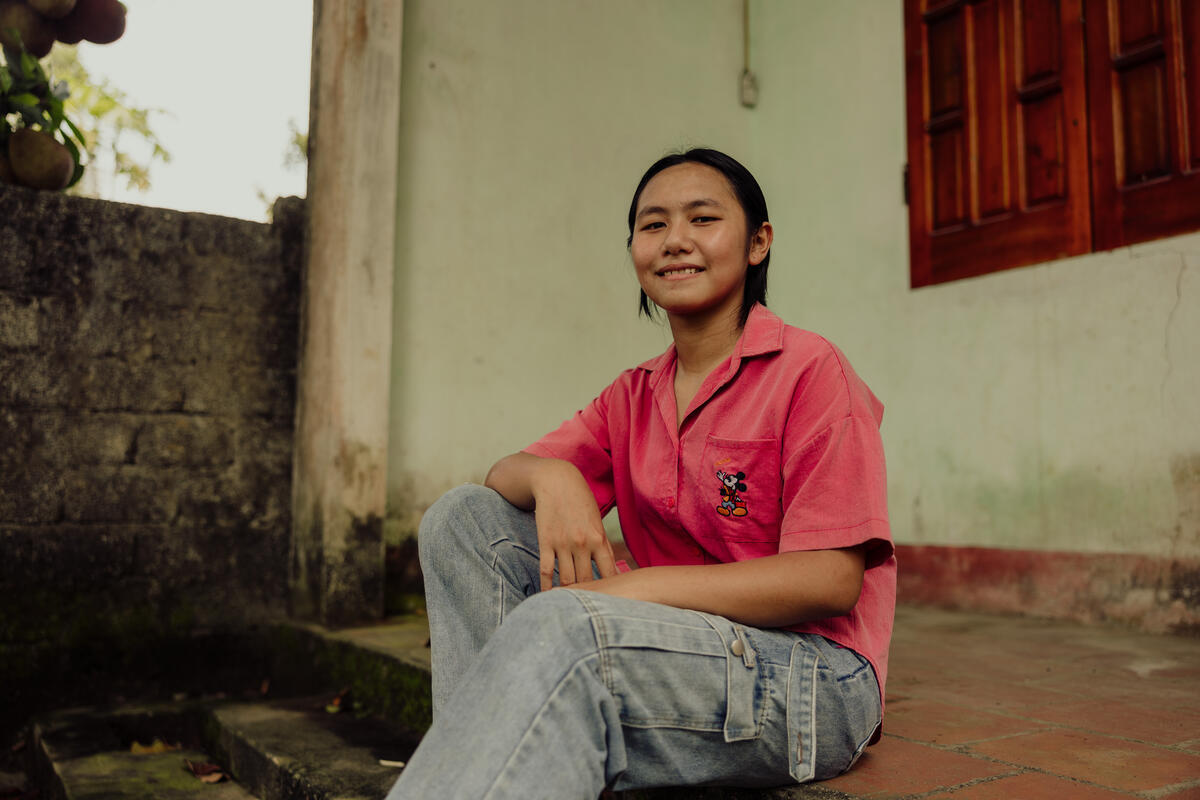Born last, treated least… until sponsorship changed everything

Growing up in rural Vietnam, Linh always knew her brother was the favourite.
Her father, Van, like many in his generation, grew up believing sons were better than daughters. Traditionally, sons would care for their parents in their old age, while daughters were expected to leave their own families, get married and take care of their husband’s family. So Van was thrilled when his firstborn was a boy. But the birth of three girls after that left him bitterly disappointed, and he made his feelings clear to his children.

“They often valued my brother more than us,” Linh says. “Since they assume that he can work more and girls are weak and cannot do anything much.”
As the children grew up, Van and his wife Nga told their son how special he was, and gave him the best of everything they had. They made his favourite foods, and when they could afford clothes for the children, they bought for him first. When the children argued, they would blame and punish the girls, and excuse their son.
Linh was the youngest of the four children. From the time she was little, she noticed how her brother was given the best of everything, while she and her sisters were overlooked. “If there were any good food, they would give it to my brother first,” she remembers. “He always had the majority. I and my sisters can only have the smaller portion.”

The favouritism filled Linh with rage. She cried at the unfairness when she was punished, and her anger and resentment built and simmered, making her withdrawn and sharp with the people around her. She hated her parents for the way they treated her, and hated living in their home.
“I felt sad, sorry for myself and sometimes even wanted to leave home,” she says. “But I was also scared of my parents.”
When Linh was 11, her family met Thuy, a World Vision volunteer. Thuy told them about the Child Sponsorship programme and how it could help their family. Her parents liked Thuy and decided to register Linh. Linh was reluctant, but over time, she came to trust Thuy. Linh joined the Children’s Club, while Van and Nga, with some encouragement, joined the Celebrating Families Club.
“It started when I was supported by the sponsors,” Linh says. “I joined in clubs and was guided by the teachers so that I had more knowledge.”
Through the children’s club, Linh discovered a safe space to share her thoughts, build friendships, and learn about her rights. “I was taught about school violence in the children’s club,” she says. “They taught us that if we are bullied, we have to be brave and strong to speak out for ourselves.”
She also learned that girls are just as capable and worthy as boys. “I learnt about children’s rights, which consists of the right to be protected, the right to speak, the right to raise our voice for ourselves, and the right to be listened.”
Her parents were learning too – about the love and care children need to grow up healthy – emotionally, mentally and physically. They learned how to foster strong family relationships and how girls should be loved and treated equally to boys. .
After many months, with encouragement and support from Thuy and others at World Vision, Linh built up the courage to speak to her parents.
“When I got home, I decided to speak out all the words in my heart to my parents.”
It wasn’t easy. “At first, I did not get a positive result,” she recalls. “But they gradually became more receptive and learned how to love me in a better way.”

Bit by bit, Van and Nga began to think and act differently. Today, Linh has a more positive relationship with her parents. She encourages her sisters to pursue their studies so they can achieve their dreams.
“We have to be brave and strong to speak out for ourselves. I feel a lot more confident, and I’m not scared of speaking for myself anymore,” Linh says.
Linh is now one of 3,000 sponsored children across six communities in Thuong Xuan, Vietnam. She plans to go to university when she finishes school, and wants to be part of the military one day. In the meantime, she’s sharing what she has learned about gender equality with her friends and neighbours – and she’s quick to stand up against bullying when she sees it, especially of girls.
Right now, too many girls are denied the chance to succeed. When you sponsor a girl, you help remove the barriers that hold her back, giving her access to education, protection, and the opportunities she deserves, so she can write her own future.
Join the movement to sponsor 1,000 girls by 11th October, International Day of the Girl. Become a sponsor today.